Past honorees
History of Ohio State Alumni Awards
The alumni association’s awards program celebrates 67 years of excellence by honoring alumni and others who have brought extraordinary credit to Ohio State. Explore the past recipients of these prestigious awards.
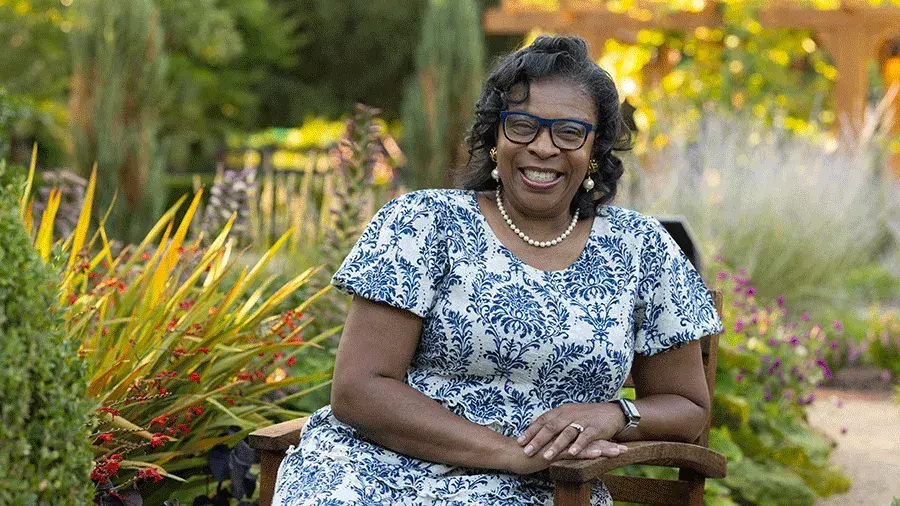
2025 Alumni Award honorees
Learn more about the accomplished recipients of 2025's prestigious awards.
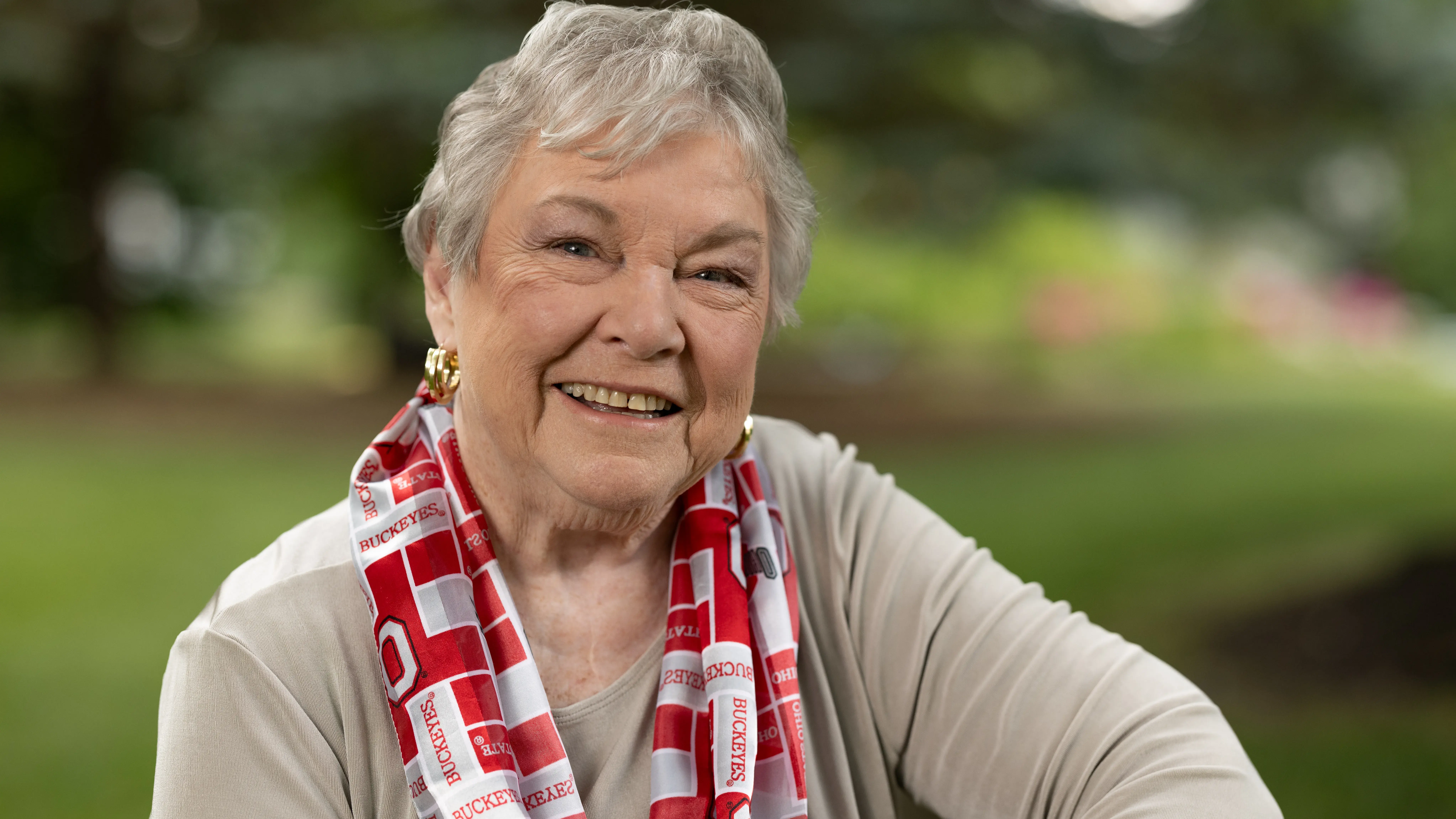
2024 Alumni Award honorees
Learn more about the accomplished recipients of 2024's prestigious awards.

2023 Alumni Award honorees
Learn more about the accomplished recipients of 2023's prestigious awards.
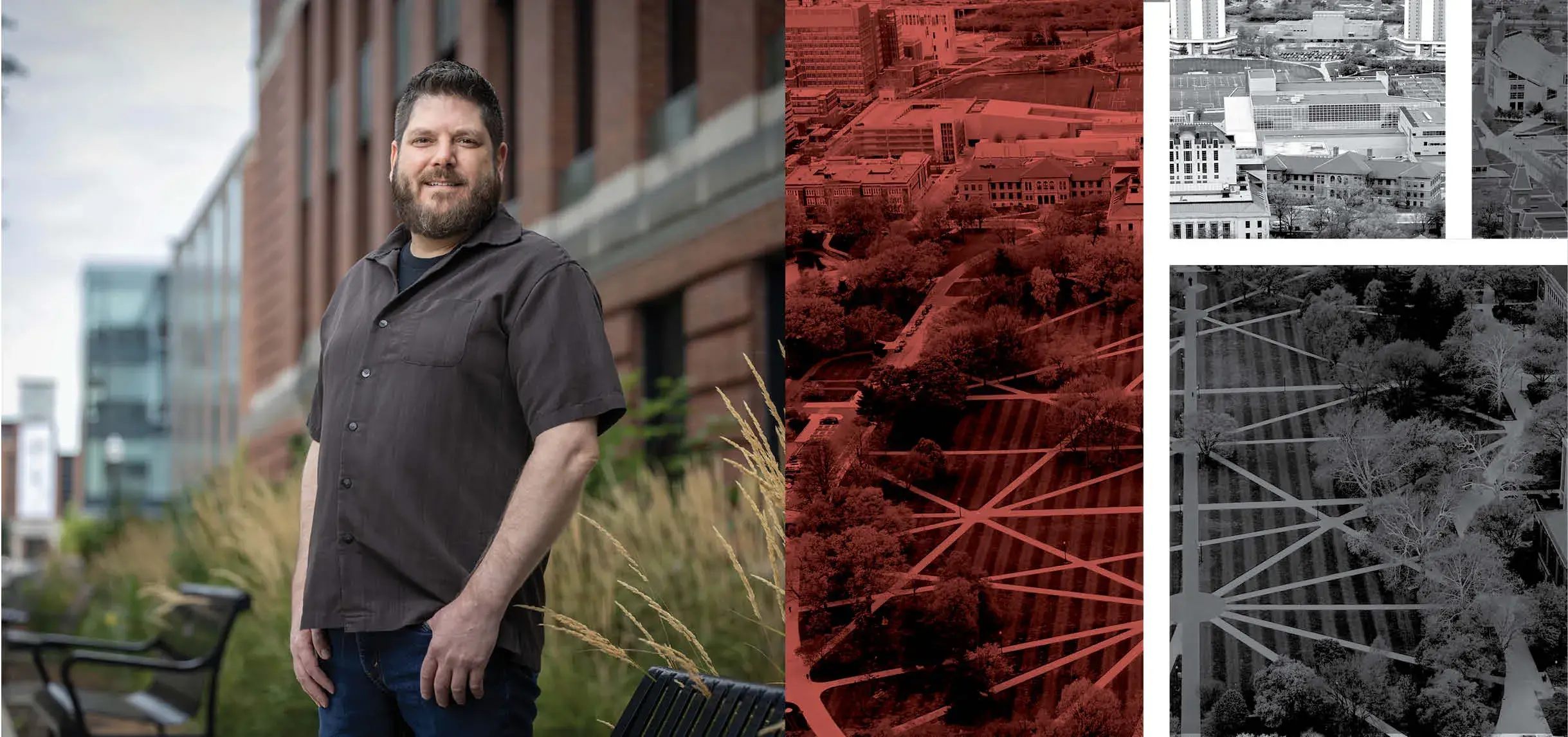
2022 Alumni Award honorees
Learn more about the accomplished recipients of 2022's prestigious awards.
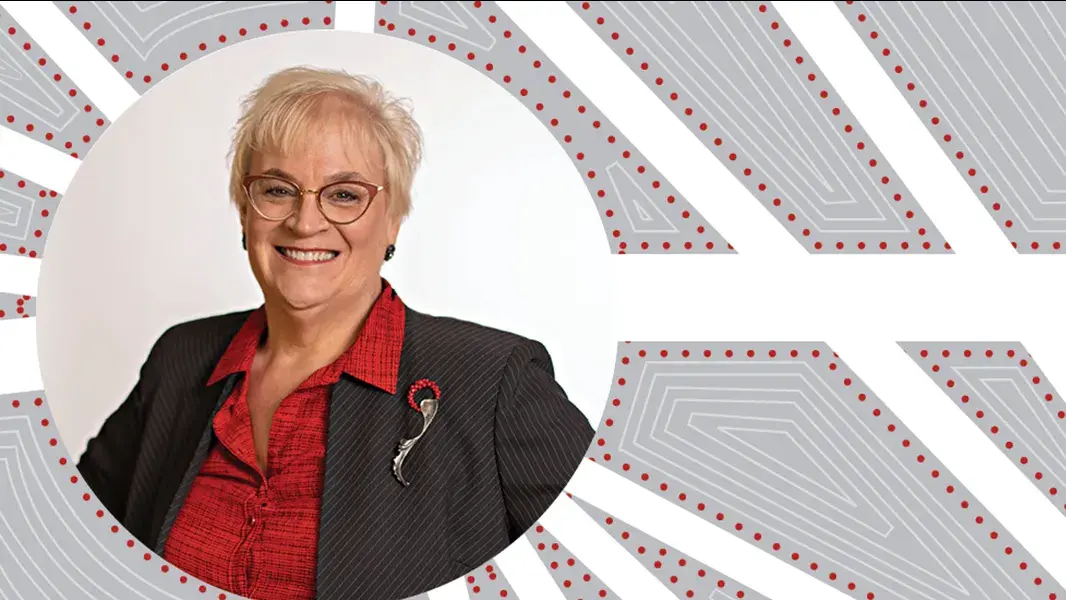
2021 Alumni Award honorees
Learn more about the accomplished recipients of 2021's prestigious awards.
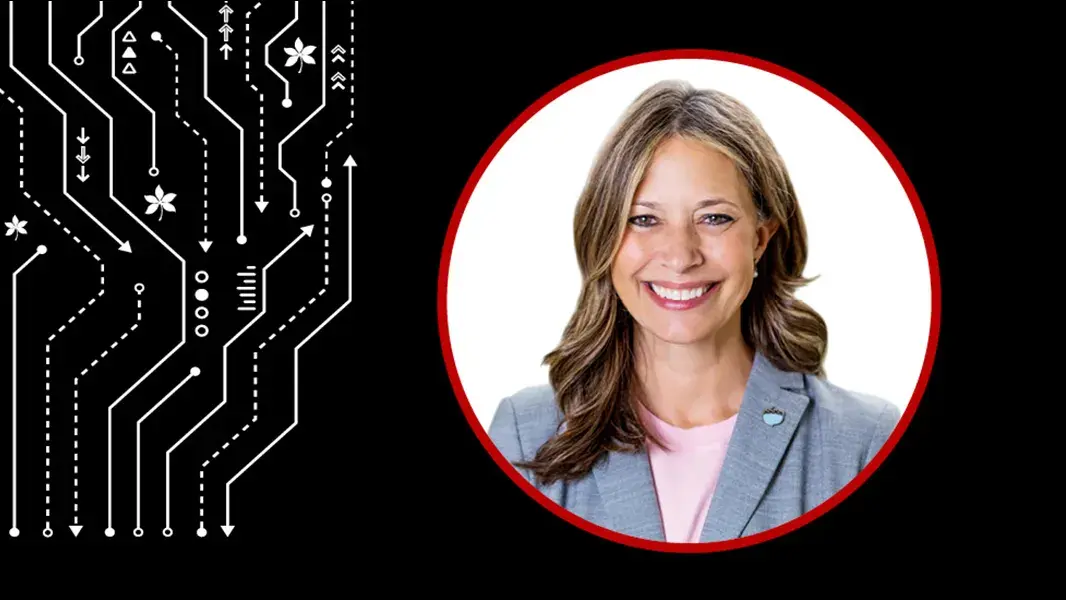
2020 Alumni Award honorees
Learn more about the accomplished recipients of 2020's prestigious awards.
2010-2019 Recipients
2019 Rattan Lal
2018 John W. Creighton Jr.
2017 Kenneth M. Hale
2016 Gay Su Pinnell
2015 Lawrence Andrews
2014 Faye Wattleton
2013 Edward H. Rensi
2012 Gerald E. Lowther
2011 Vice Admiral Thomas R. Wilson
2010 George V. Voinovich
2019 Paul Stromberg
2018 David Hamlar
2017 Charles F. Kurfess
2016 Alan W. Brass
2016 William Chien-Yeh Lee
2015 Susan Mallery
2015 Anne Klamar
2014 Ron O'Brien
2014 Dale A. Seiberling
2013 Shyama P. Chakroborty
2013 Robert Heath
2012 Matthew J. Desch
2012 Rattan Lal
2012 Subodh G. Mhaisalkar
2011 Gary G. Koch
2011 Michael D. Maves
2010 Robert L. Bartels
2010 David L. Costill
2010 Kelley W. Crooks
2019 Lori Herman
2018 Nancy Lohman
2017 Diane S. DeLawder
2016 Dan Sandman
2015 John C. “Jack” Fisher
2014 Steven W. Jemison
2013 Barbara K. Fergus
2012 William P. Blair, III
2011 Edwin M. Cooperman
2010 John Foltz
2010 Anne Foltz
2019 Quinn Capers
2018 Edison Fowlks
2017 Phillip D. Barnes
2016 Corbett A. Price
2015 Leonard L. Haynes III
2019 Naval ROTC
2018 The Ohio State University Dance Team
2017 Buckeye Cruise for Cancer
2016 BuckeyeThon
2015 Brutus Buckeye
2014 Aaron Craft
2013 Ty Tucker and the Ohio State men’s tennis teams
2012 Jon R. Woods
2011 2011 Ohio State men's volleyball team, National Champions
2010 Raymond A. Miller
2019 Amy Alcorn Wittmann
2018 Kristy Mount Staats
2017 Patricia F.R. Cunningham
2016 Marialice S. Bennett
2015 Dottie Lee Wilker
2014 Linda C. Stone
2013 David S. Wilson
2012 James D. Miller
2011 James A. Terranova
2010 Laura G. Anthony
2019 Shelley Graf
2018 Steve Smith
2017 Daniel E. Kimmet
2016 Jeffrey D. Logan
2015 William Gue
2015 William Simon
2014 John L. Melvin
2014 Jeffrey A. Myers
2013 Joseph T. Barr
2013 Carol W. Kennedy Jones
2012 L.H. Newcomb
2012 Calvin D. Wible
2011 Kenneth M. Clemens
2011 Jane Foulser Rector
2010 Frank Bazler
2010 Virginia Bazler
2010 Janet E. Porter
2010 Roger L. Saneholtz
2019 Herb Robinson
2018 Sue Helmreich
2017 James G. Roberts
2017 Kristen A. Catton
2016 Bol Aweng
2016 Peter A. Cline
2015 Ryan Miller
2014 Stephen P. Blythe
2014 Ann Thomas-McDonald
2013 James John Caronis
2013 Sandra C. Slomin
2012 Charles W. Gehring
2012 David Pilgrim
2011 Shirley Brooks-Jones
2011 Suzanne K. Richards
2010 Emily E. Douglas-McNab
2010 Betty F. Schoenbaum
2019 Naomi Adaniya
2018 Kelsey Schmuhl
2018 Mike Snyder
2017 Ida Abdalkhani
2016 John C. Welch
2016 Hilary N. Tomeny
2015 Chad Endsley
2014 Chukwuemeka N. Onyejekwe
2014 David E. Vollman
2013 Rosa M. Ailabouni
2013 Erika Kimble
2013 Neal S. Patel
2012 Huda M. Ahmed
2012 Danielle M. Smith
2011 Lauree Handlon
2011 Heather Link
2010 Ericka King Betts
2010 Tahira Rehmatullah
2010 Duane E. Reynolds
2000-2009 Recipients
2009 Samira K. Beckwith
2008 William G. Lowrie
2007 Lonnie G. Thompson
2007 Ellen M. Thompson
2006 Thomas E. Wheeler
2005 Girmai Abraham
2004 Paul C. H. Chiu
2003 M. Judah Folkman
2002 Paul Ecke, Jr.
2001 Ray J. Groves
2000 Nancy J. Currie
2009 Russel E. Kaufman
2009 Harry P. Bahrick
2009 George W. Acock
2008 Sander A. Flaum
2008 Robert L. Hamlin
2007 Larry L. Hench
2007 John E. Niederhuber
2007 Carter G. Phillips
2006 Timothy P. Keenan
2006 Karen S. Sliter
2006 John F. J. Clark, Jr.
2005 Samella S. Lewis
2005 Ronald J. Burns
2005 Michael E. Flowers
2004 Nancy J. Zimpher
2004 Lawrence E. Heider
2004 Ernest W. Johnson
2003 Thomas J. Moyer
2003 Robert S. Chau
2003 Gene E. Sharp
2002 Todd J. Alles, Sr.
2002 Robert L. Joseph
2002 Beverly G. Hampton
2001 Henry Ponder
2001 Charles W. Gehrke
2001 Andrea A. Zachary
2000 William B. Saxbe, Sr.
2000 David J. Citino
2009 Hongor J. Oulanoff
2008 Herbert B. Asher
2007 Mabel G. Freeman
2006 Susan V. Olesik
2005 Erin F. Moriarty
2004 Justin T. Marotta
2003 Carl D. Smallwood
2002 Frank H. Hafner
2001 David G. Rummel
2000 Michael F. Colley
2009 Tyson D. Gentry
2008 Ohio State Sportsmanship Council
2007 SPHINX Senior Honorary
2005 Student-Alumni Council
2004 James P. Tressel
2001 2001 Women’s Basketball Team
2009 Terina J. Matthews
2009 Mac A. Stewart
2008 Felix J. Alonso
2008 Alice J. Galloway
2007 M. Sue Whittington
2007 Elizabeth J. Watters
2007 Dana L. Wrensch
2006 Paul W. Bohlman
2006 John V. Chidley
2006 David E. Straub
2005 William H. Hall
2004 Maurice E. Mullet
2003 Bradley A. Myers
2002 John P. Henderson
2001 Theodore L. Adams
2001 Doris P. Nocera
2000 Scott M. Van Ooyen
2009 Velman Vizedom Everhart
2009 Susan L. Hubbell
2009 Robert B. Horton
2008 Sarah M. Smith
2008 Ralph V. Foster
2008 Dan D. Sandman
2007 Lynn A. Colby
2007 Jack D. Miner
2006 Rita Woeste
2006 Manuel Tzagoiurnis
2005 Susan E. Brown
2005 James M. Ryan, Jr.
2005 Gay S. Pinnell
2004 Jane Fawcett-Hoover
2004 James F. Patterson
2003 David L. Kahler
2003 Ann M. Ball
2002 Donald H. Schriver
2002 David A. Ward
2001 R. Reed Fraley
2001 Katherine A. Kisker
2001 John H. Hamilton
2000 Ruann F. Ernst
2000 Randall C. Ingold
2000 Ora A. Winzenried
2009 Edmund Casper
2009 Bernard J. Scott
2008 Lester R. Mohler
2008 Joy G. Cauffman
2008 Boyd Epperson
2008 Anne Epperson
2007 Ted Jacobs
2007 Ching-Mey See
2006 Lois B. Bing
2006 H. Charles Wolf
2006 Donald L. Burton
2005 John C. Foltz
2005 Joan L. McCoy
2004 Thomas M. Francis
2004 Lyn M. Geiser
2004 George P. Pettit
2003 Sam Swope
2003 Robert D. Scherer
2003 Preseton V. McMurry, Jr.
2002 Peggy J. Furth
2002 Lowell E. Fisher
2002 K. Anderson Crooks
2001 Robert M. Schulte
2001 Marilyn K. Sheridan
2001 Fred K. White
2000 Karen Schwarzwalder
2009 Jacqueline N. Olayiwola
2009 Aimee C. Nezhukumatathil
2008 Lindsay Hill
2008 Jareer M. Abu-Ali
2008 Brooke M. Hoffman-Faught
2007 Robert W. Edmund
2007 Kathryn L Wilson
2007 Jeffrey M. Jordan
2006 Xi-Yong S. Fu
2006 Sandra W. Wang-Harris
2006 Monica A. Ramirez
2005 Matt A. Mayer
2005 Brian R. Besanceney
2005 Braden E. Kail
2004 Salvador A. Cicero
2004 Andrea R. Shemberg
2004 Amy R. McGee
2003 Steve Livingston
2003 Ron Neil A. Jones
2003 Brian E. Burns
2002 Karl J. Kisner
2002 John W. Hilbert, III
2001 Stephanie B. Spielman
2000 Peyton R. Howell
2000 Kevin Wendt
2000 Diana F. Butts
1990–1999 Recipients
1999 Richard I. Wells
1999 Benjamin L. Zox
1998 Richard D. Johnson
1998 Edward J. Oates, Jr.
1997 Virginia Bazler
1997 Jerry B. Pausch
1997 Harrison E. Shutt
1996 Sally W. Bloomfield
1996 Richard F. Slager
1996 Joe R. Engle
1995 Gary K. Sims
1995 Clarice S. Combs
1995 Charles E. Beatley, Jr.
1994 Thomas J. Eyerman
1994 Robert P. Liggett
1994 Richard N. Adams
1994 John K. Pfahl
1993 William E. Arthur
1993 Frank E. Bazler
1993 B. Maxwell Drake
1992 Naomi M. Meara
1992 Karl S. Hay
1992 John J. Schiff, Sr.
1991 Thekla R. Shckelford
1991 Robert K. Fox
1991 Ralph A. Rockow
1991 Margaret M. Roberts
1991 Dorothy B. Fox
1991 Ben F. Bodager
1990 Samuel M. Melton
1990 Morris L. Battles
1990 Mary E. Eyerman
1990 John E. Foster
1990 H. Ward Ewalt, Jr.
1999 Everett B. Laybourne
1998 Richard L. Stoltzman
1997 John D. Ong
1996 Ljubica Z. Acevska
1995 John D. Drinko
1994 Max M. Fisher
1993 Ralph W. Cummings
1992 Malvin G. Whitfield
1991 Arthur G. James
1990 Leslie H. Wexner
1999 John H. Waldock Sr.
1998 William Swank
1997 Ruth W. Mount
1999 John T. Mount
1998 TBDBITL Alumni Club, Inc.
1997 E. Gordon Gee
1999 David B. Carwile
1998 David E. Harrison
1998 Carl R. Zulauf
1997 Paul D. Lawrence
1997 Adnelle H. Heskett
1996 David B. Gerber
1994 Steven M. Carter
1994 Carl D. Smallwood
1993 Wendell W. Ellenwood
1993 Timothy J. Carrigg
1993 Katherine A. Kisker
1992 Raymond A. Miller
1991 Thomas H. Rockwell, Sr.
1990 Warren G. Weiler
1990 Virginia S. Conn
1990 Janet S. Crist
1999 Robert E. Taylor
1999 Errol R. Alden
1999 Elaine H. Hairston
1998 David W. Einsel, Jr.
1998 Clotilde D. Bowen
1998 Carole F. Black
1997 John Jakes
1997 C. Louise Caudill
1996 Jeffrey M. Couch
1996 Jack Buck
1996 Charles A. Csuri
1995 John P. Schooley, Jr.
1994 Austin E. Knowlton
1993 Daniel G. Amstutz
1992 Dale B. Baker
1999 Thomas C. Sawyer
1999 Sheila A. Castellarin
1999 Donna M. Alvarado
1998 Susan J. Insley
1997 Robert E. Momsen
1997 J. William Melsop
1997 Barbara T. Harris
1996 Richard Lewis
1996 Karen L. Hendricks
1995 Raymond E. Mason, Jr.
1995 Donald E. Demkee
1995 Connie S. Cahill
1994 William Goldman
1994 Richard L. Furry
1994 John J. Tatgenhorst
1993 Steven W. Gilby
1993 Robert S. Dorsey
1993 James W. Phillips
1992 Wayne H. Kuhn
1992 Molly C. Fisher
1992 John B. Gerlach, Sr.
1991 Thomas E. Cavendish
1991 Rocco L. Fumi, Sr.
1991 Alfred G. Cochran
1990 Richard H. Leet
1990 John G. Kramer
1990 George J. Caronis
1900 Ralph E. Kent
1999 William M. Jennings
1999 Frederick A. Sewards
1999 Elizabeth J. Watters
1998 Manoj Sharma
1998 John L. Landolfi
1998 Jerry L. Canterbury
1997 Steven F. Hastings
1997 Robert L. Peterson
1997 Julie A. Johnson
1996 John G. Damrath, III
1996 Jeffrey P. Miller
1996 Daniel R. Katz
1995 Wade T. Steen
1995 Michael E. Pearce
1995 Donald A. Lee
1994 Yvette McGee Brown
1994 Mary Beth Foltz Arensburg
1994 Kristine Noel Kinkle-Wilson
1993 Sunil Erevelles
1993 Christopher R. Richied
1993 Christopher J. Vlahos
1992 Thomas E. Szykowny
1992 Leslie R. Smith
1992 Joseph W. Kessler
1991 Douglas P. Yurovich
1991 David W. Priestley
1991 Bruce G. Brandstetter
1990 William E. Houston
1990 Oliver G. McGee, III
1990 Bradley R. Kastan
1980-1989 Recipients
1989 William W. Grimes
1989 William S. Guthrie
1989 Robert W. Teater
1989 Paul T. Santilli
1989 Lewis M. Cerreta
1989 Helen B. Overpeck
1988 Theodore B. Myers
1988 Samuel D. Stellman
1988 Mitsugi Sato
1988 Max W. Holzer
1988 Everett B. Laybourne
1988 Charles C. Huber
1987 William H. Ells
1987 Nicholas J. Wasylik
1987 Grace B. Martin
1987 Constance L. Collins
1987 Charles E. Fry
1986 Verna B. Courtemanche
1986 Melvin L. Schottenstein
1986 Henry A. Wilson
1986 Geraldine E. Joseph
1986 George M. McCann
1986 Geoffrey S. Goll
1985 Robert W. Bauter
1985 Lillian K. Beam
1985 Hugh R. Higgins
1985 Eugene C. D’Angelo, Jr.
1985 Anita S. Ward
1984 William E. Curran, Jr.
1984 Margaretta B. Schuck
1984 George M. Gableman
1984 Frank W. Hale, Jr.
1984 Edith T. Christman
1983 Wayne W. Hayes
1983 Rose L. Papier
1983 Robert M. Best
1983 Richard B. Miller
1983 Eleanor S. Resler
1982 William R. “Ziggy” Coyle
1982 Paul M. Herbert
1982 Jean W. Reilly
1982 Henry H. Schriver
1982 Harriet H. Parker
1982 Frank P. Bolden
1981 Wallace W. Hall, Jr.
1981 Thomas B. Hagen
1981 The Honorable David J. Leland
1981 Orland C. Duke
1981 J. Gilbert Reese
1981 F. Eleanor Beal
1980 Larry J. B. Robinson
1980 Harry E. Evans
1980 Harold A. Jones
1980 Charles R. Burbacher
1980 Beatrice J. Cleveland
1989 Ray W. Gifford, Jr.
1988 Betsy L. Dresser
1987 Milton A. Caniff
1986 Frank Stanton
1985 Jerome Lawrence
1984 W. Milfred Batten
1989 Robin A. Bell
1989 Beatrice J. Cleveland
1989 Walter S. Klevay, Sr.
1989 Robert J. Watkins
1988 Stuart A. Summit
1988 Leland F. Brubaker
1987 William R. “Ziggy” Coyle
1987 Paul Ecke Jr.
1987 Arthur D. Hermann
1986 Stanley E. Harrison
1986 Robert M. Duncan
1986 Howard E. LeFevre
1985 William Swank
1985 Novice G. Fawcett
1985 David F. Ullman
1984 William E. Knepper
1984 Josephine S. Failer
1984 Bryan F. Hartley
1989 Joseph P. Grady
1989 Jeffrey N. Trimble
1989 Archie M. Griffin
1988 R. Eric Miller
1988 Karen Collins-O’Neal
1988 A. Mary Sterling
1988 A. Mary S. Schiavo
1987 Mark E. Cooper
1987 John K. Bell
1987 Jeffrey R. Rodek
1986 Steven M. Wasserstrom
1986 Judith K. Gwathmey
1986 Jeffrey M. Young
1985 Susan E. Alvarado
1985 Dennis C. Sargent
1985 David L. Morris
1984 John C. Jay
1984 Diane E. Kesling
1970-1979 Recipients
1979 Wellington F. Roemer
1979 Robert C. Coplan
1979 Robert A. Vogel
1979 Jerome D. Forkman
1979 James A. Rhodes
1979 Gordon D. MacKay
1978 Robert E. Cassidy
1978 Leonidas J. Smith
1978 Josephine S. Failer
1978 John D. Beal
1978 Edwin D. Dodd
1978 Edith M. Vuchnich
1977 Pessa Kilpstein
1977 John C. Keggan
1977 Janet W. Ebert
1977 Arthur R. Cline
1976 Nita H. Bethel
1976 L. Mandy Stellman
1976 Jack S. Resler
1976 Harry P. Jeffrey, Sr.
1976 Gordon F. Moore
1976 Arthur J. Cloran
1975 Saul Siegel
1975 Lewis E. Baughman
1975 George W. Hoddy
1974 Wilbur H. Sidner
1974 Sanford G. Price
1974 Sally M. Nitschke
1974 Rowena C. Shriber
1974 James H. Howland, Sr.
1974 David E. Tilton
1973 William G. Heim
1973 Victor C. Ciancetta
1973 John H. Dunlap, Jr.
1973 G. Harold Martin
1973 David S. Goldschmidt
1972 Novice G. Fawcett
1972 Marjorie K. Fawcett
1971 Clair E. Fultz
1970 Dorothy W. Cooperrider
Recipients prior to 1970
1969 Max M. Fisher
1968 Amalie K. Nelson
1967 John B. Fullen
1966 James R. Riley
1965 Jesse Owens
1964 Jane Devaney Harris
1963 Edward S. Drake
1962 Paul R. Gingher
1961 Thomas F. Patton
1960 Robert T. Mason
1959 Alfred H. Whittaker
1958 Howard Z. Dredge
